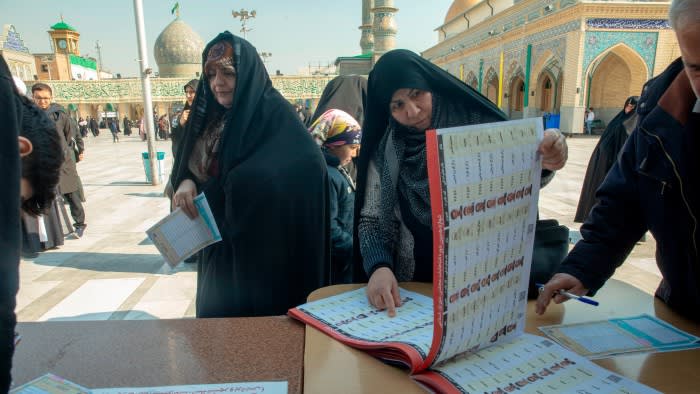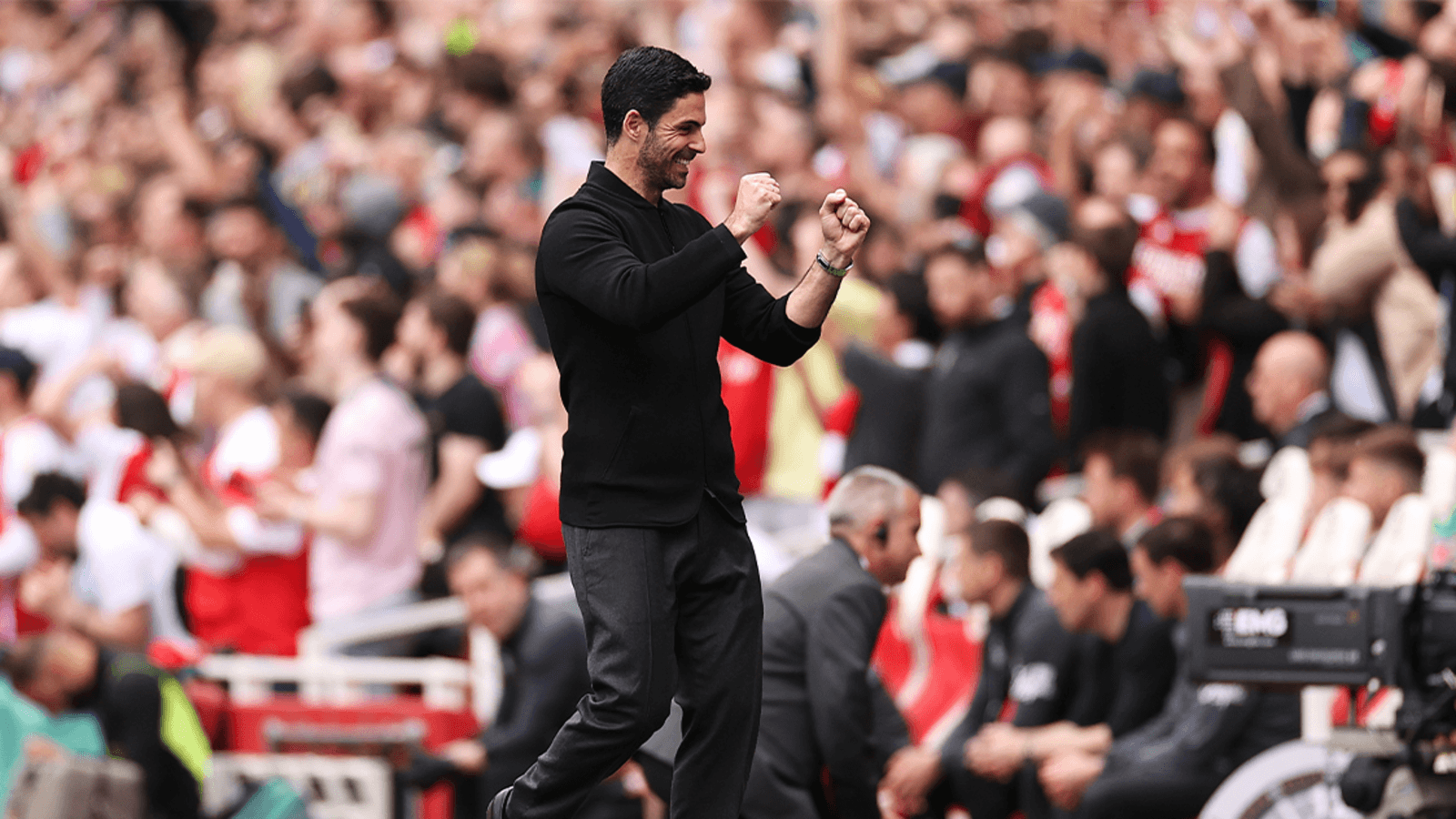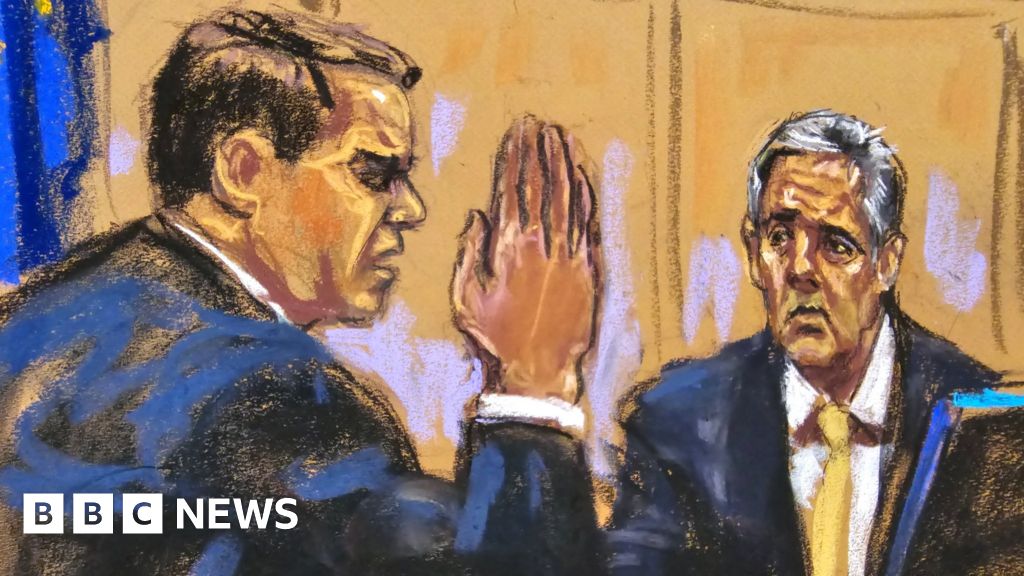Unlock the Editor’s Digest for free
Roula Khalaf, Editor of the FT, selects her favourite stories in this weekly newsletter.
Turnout in Iran’s parliamentary election fell to historic lows, according to preliminary results from a race that underscored how hardliners have consolidated power in the Islamic republic.
Overall turnout in the election, which included Tehran and more than a dozen other constituencies, dropped to as low as 41 per cent, according to state news agency IRNA, continuing a trend of disengagement in elections.
A run-off vote will be held in Tehran, where about half of the 30 parliamentary candidates did not reach the required threshold. Local media reports put turnout in Tehran at about 24 per cent. Iran’s interior ministry has yet to publish official results.
The rate of participation is a setback for Iranian authorities, who have traditionally pointed to high voter turnout as proof of the Islamic republic’s legitimacy.
Despite the regime appealing for people to go to the polls, many voters refused to cast their ballots after leading pro-reform and moderate figures were purged in a pre-election vetting process.
Disillusionment has also been fuelled by soaring costs of living, inflation above 40 per cent, and a steep depreciation of the national currency over the past two years.
Hamid, a 22-year-old salesperson in Tehran, who did not vote, said: “What is the point of voting when I know my vote wouldn’t change anything?”
An alliance of pro-reform parties refused to propose a list in Tehran, the country’s political hub and largest constituency, but endorsed candidates in other cities.
Moderate candidates in Tehran were entirely beaten by their hardline rivals. Around 30 moderate figures, including a few prominent reformists such as Masoud Pezeshkian, managed to enter the 290-seat parliament nationally.
Former reformist president Mohammad Khatami refused to vote in the election; Mohammad Ali Abtahi, the ex-vice president, said it was the only way Khatami “could make his thoughtful considerations heard”.
Analysts said that the low turnout carried an important political message to the ruling establishment.
Majid Ansari, a reformist politician, expressed worry over the risks of “people losing their faith in the ballot box”. He warned that the sluggish participation showed the “republic component” of the regime was “losing its breath”.
On Friday, Iran also held elections for the Assembly of Experts, an 88-member body that might have to choose a successor to Ayatollah Ali Khamenei, Iran’s 84-year-old spiritual leader and commander-in-chief, if he dies during the assembly’s eight-year term.
President Ebrahim Raisi entered the Assembly from the eastern South Khorasan province with 275,000 votes.
Raisi thanked the Iranian people for their “wise and well-timed” presence in elections and for bringing “despair and disillusionment to enemies” of Iran who had spent “billions of dollars” to undermine the elections.
State-affiliated media played down the low turnout and boasted of victory. State television argued that in most countries, turnout in parliamentary elections ranged between 40 and 50 per cent.
Tasnim news agency, which is close to the revolutionary guards, said the 25mn votes cast indicated that the massive election boycott campaign, created overseas and supported by radical groups inside the country, had failed.

The election results also signalled a shift in power within the conservative camp. Less prominent hardline figures, who have risen to power in the past decade, scored a victory against old-guard conservatives, such as Mohammad-Reza Bahonar.
Mohammad-Bagher Ghalibaf, the conservative speaker of the parliament, came just fourth on the list of 30 representatives from Tehran, complicating his chances of presiding over the legislature for another term.
In a further blow to more traditional conservative figures, Sadeq Larijani, former judiciary chief and current chair of the Expediency Council, which drafts the country’s macro policies, failed to secure enough votes to enter the Experts Assembly.
Saeed Shariati, a reformist activist, said the fact that 80 per cent of people in Tehran and 60 per cent nationwide did not vote carried “a peaceful message” to the authorities, that “the people are not your enemies, but are opposed to [your] method of governance”.

Robert Johnson is a UK-based business writer specializing in finance and entrepreneurship. With an eye for market trends and a keen interest in the corporate world, he offers readers valuable insights into business developments.








